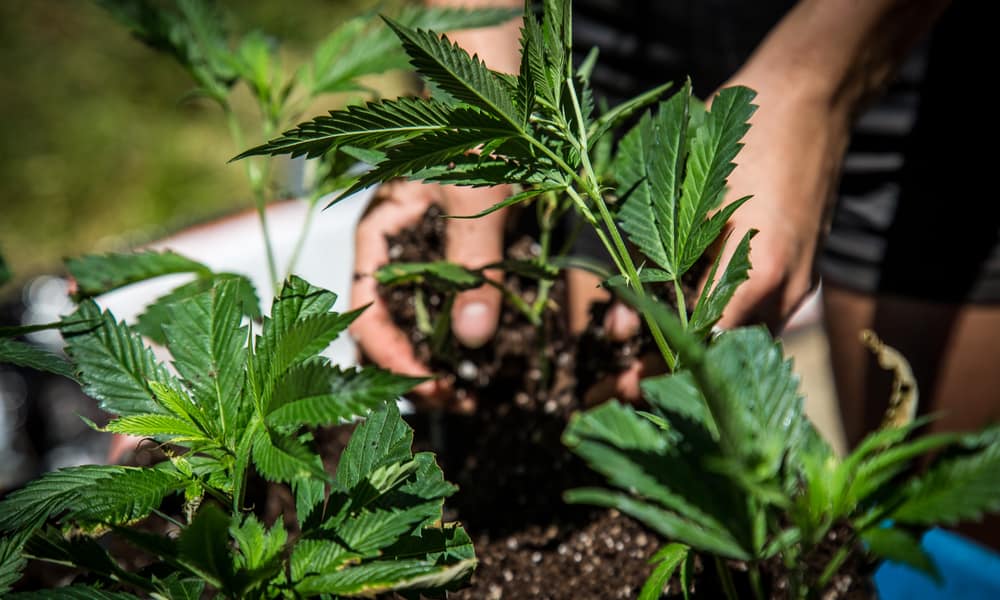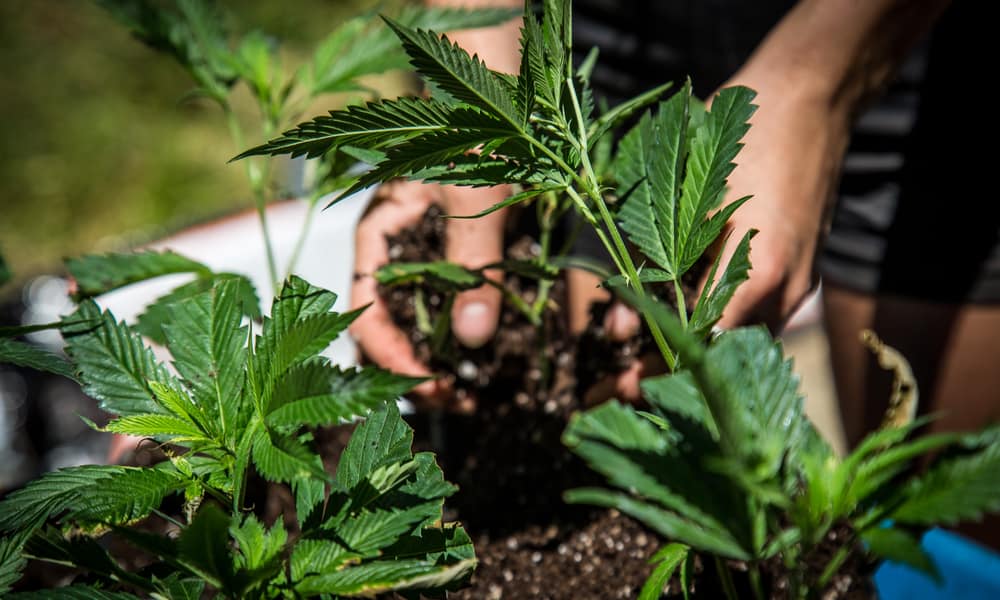
As the Trump administration continues escalating its attacks on immigrants, federal officials recently denied citizenship to two immigrants solely because they worked in Colorado’s legal marijuana industry. The move has quickly become controversial, as activists and progressive lawmakers worry that the federal government might begin using cannabis laws in weed-legal states as a pretext for targeting immigrants.
Immigrants in Denver Denied Citizenship
In recent weeks, two immigrants living in Denver were denied citizenship. And in both cases, immigration officials cited the same reason: both had worked in Colorado’s legal marijuana industry.
One of the immigrants denied citizenship is from Lithuania. To date, this individual’s name has not been made public due to concerns over their current employment status.
The other is 30-year-old Oswaldo Barrientos, who currently works as cultivation manager at The Dab, a fully legal cannabis company in Denver.
Barrientos discovered his interest for cannabis when his mother was diagnosed with Stage 3 melanoma skin cancer. In the wake of her diagnosis, he said he immediately began researching medical marijuana.
“I studied and read everything I could,” he told High Times. “I just really saw the medicinal value cannabis holds and I truly believe in it. That’s what catapulted me into the industry.”
Entrapped by USCIS?
A resident and Green Card holder, Barrientos has lived in the United States since he was one, when his mother immigrated to the U.S. from her native El Salvador.
In November 2018, as part of his citizenship application, Barrientos completed an interview with officials from U.S. Citizenship and Immigration Services (USCIS). Leading up to this interview, Barrientos said he aced all the tests required for citizenship. And for the most part, the interview went well, too.
But then things took an unexpected turn. According to Barrientos and his lawyers, at the end of the interview, USCIS officials suddenly made him read a number of documents, including things like the legal definition of a Schedule I substance and what qualifies as criminal manufacturing and distribution of illegal substances.
They then probed him on his work at The Dab. By the end of the interview, Barrientos said, the USCIS officials had basically forced him to confess to breaking federal drug laws.
“That part of the interview, it’s what I call essentially entrapment,” Bryce Downer of Novo Legal Group and one of Barrientos’ lawyers told High Times.
Then, on February 7, 2019, Barrientos received a letter from USCIS informing him that he was not eligible for citizenship.
“Because of your admission regarding a controlled substance violation,” the letter said, “you are unable to demonstrate that you are a person of good moral character; therefore, you are ineligible for naturalization at this time.”
What’s Next for Barrientos
Barrientos said he, his family, and his community were shocked when he received the letter.
“I was surprised and a little scared. I was wondering does this mean I’m going to get deported?” he told High Times. “I never thought I would be put in a situation like this. I fit the description of what an immigrant should look like when they’re applying for citizenship.”
He explained: “I pay my taxes year in and year out. I have zero criminal record, I went into the interview assuming that I was a shoo-in. I’ve never broken the law in any way or been arrested. And then all of a sudden they’re putting me in a bracket where to the feds I’m distributing and manufacturing a Schedule I drug.”
At this time, Barrientos is not being charged with a crime. But Downer said that the denial of citizenship could make Barrientos vulnerable to future detention or prosecution. In particular, if Barrientos travels outside the country, officials could detain him when he re-enters the U.S.
“What they’re doing is teeing him up for future prosecution by the enforcement arm of immigration,” Downer told High Times. “They are doing this with an eye focused on prosecution.”
Barrientos and his lawyers said they plan to appeal the decision. Additionally, they said they would consider taking their case to federal court if necessary.
Is The Federal Government Using Legal Gray Area to Target Immigrants?
The situation in Denver is raising some alarming questions. One of the biggest is if the federal government will begin using the legal gray area of state cannabis laws as a pretext for going after immigrants.
Basically, that gray area exists in the confusion between federal laws and state law. On the one hand, cannabis remains illegal at the federal level. But on the other, it is legal in a growing number of states, including Colorado.
To make matters worse, there is confusion among federal agencies. Most notably, between the Department of Justice (DOJ) and the Department of Homeland Security (DHS).
Historically, the DOJ has largely followed a policy of not meddling in state marijuana laws. Meanwhile, the DHS is apparently taking a very different approach, citing as it did in Denver federal cannabis laws as grounds for denying citizenship.
“It’s just a dual message,” Downer told High Times. “You have the DOJ which is saying one thing about the legal cannabis industry and then you have the Department of Homeland Security saying another. And it’s only to the prejudice of immigrants.”
“This isn’t an anti-cannabis move. It’s an anti-immigrant move.”
Now, many fear that immigration agencies will use federal cannabis laws as a legal pretext to target, harass, and prosecute immigrants living in weed-legal states.
“This is kind of an extension of the current strategy by this administration of putting up any and all roadblocks to keep people from becoming citizens” Cristian Solano-Córdova, Communications Manager at Colorado Immigrant Rights Coalition, told High Times.
“This seems like a continuation of that, looking for any and all possible ways to limit legal immigration. This isn’t an anti-cannabis move. It’s an anti-immigrant move.”
So far, USCIS officials insist they are simply following federal law. They say their decision to deny citizenship to the two Denver residents stems from concerns over federal cannabis laws, not a crackdown on immigrants.
But for many, this narrative isn’t very convincing.
“If the executive branch is so intent on upholding federal law, you would see the U.S attorney’s office prosecuting every marijuana business owner, everybody who worked in the industry,” Aaron Elinoff, Barrientos’ other attorney, recently told The Denver Post. “But they’re not. Instead, they’re merely targeting immigrants.”











